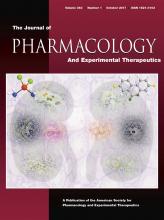Abstract
The glucocorticoid-induced leucine zipper (GILZ) is an important mediator of anti-inflammatory corticosteroid action. The pharmacokinetic/pharmacodynamic/pharmacogenomic effects of acute and chronic methylprednisolone (MPL) dosing on the tissue-specific dynamics of GILZ expression were examined in rats. A mechanism-based model was developed to investigate and integrate the role of MPL and circadian rhythms on the transcriptional enhancement of GILZ in multiple tissues. Animals received a single 50-mg/kg intramuscular bolus or a 7-day 0.3-mg/kg/h subcutaneous infusion of MPL and were euthanized at several time points. An additional group of rats were euthanized at several times and served as 24-hour light/dark (circadian) controls. Plasma MPL and corticosterone concentrations were measured by high-performance liquid chromatography. The expression of GILZ and glucocorticoid receptor (GR) mRNA was quantified in tissues using quantitative real-time reverse-transcription polymerase chain reaction. The pharmacokinetics of MPL were described using a two-compartment model. Mild-to-robust circadian oscillations in GR and GILZ mRNA expression were characterized in muscle, lung, and adipose tissues and modeled using Fourier harmonic functions. Acute MPL dosing caused significant down-regulation (40%–80%) in GR mRNA and enhancement of GILZ mRNA expression (500%–1080%) in the tissues examined. While GILZ returned to its rhythmic baseline following acute dosing, a new steady-state was observed upon enhancement by chronic dosing. The model captured the complex dynamics in all tissues for both dosing regimens. The model quantitatively integrates physiologic mechanisms, such as circadian processes and GR tolerance phenomena, which control the tissue-specific regulation of GILZ by corticosteroids. These studies characterize GILZ as a pharmacodynamic marker of corticosteroid actions in several tissues.
Footnotes
- Received May 19, 2017.
- Accepted July 11, 2017.
This work was supported by the National Institutes of Health National Institute of General Medical Sciences [Grant GM24211].
- Copyright © 2017 by The American Society for Pharmacology and Experimental Therapeutics
JPET articles become freely available 12 months after publication, and remain freely available for 5 years.Non-open access articles that fall outside this five year window are available only to institutional subscribers and current ASPET members, or through the article purchase feature at the bottom of the page.
|






